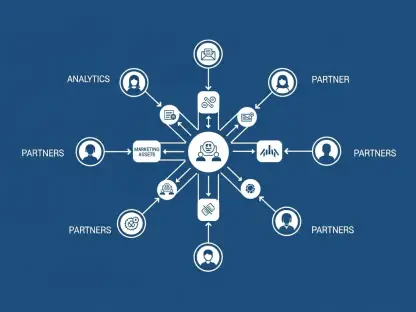Setting the Stage for Digital Revenue Growth
Imagine a digital marketplace where South Africans, from bustling urban centers to remote rural areas, are turning online platforms into steady income streams with minimal investment, harnessing the power of affiliate marketing as a transformative force. This performance-based strategy is reshaping how individuals and businesses tap into the digital economy, especially with platforms like Takealot and Zando leading the charge in the rapid growth of e-commerce and digital services across the nation.
This market analysis aims to dissect the current state of affiliate marketing in South Africa, shedding light on its exponential rise, key trends, and future potential. By examining data-driven insights and local dynamics, the purpose is to provide a clear roadmap for stakeholders looking to leverage this opportunity. The significance lies in understanding how this sector can drive economic inclusion in a country hungry for flexible, scalable income sources.
What makes this analysis timely is the intersection of technological advancements and shifting consumer behaviors that are fueling affiliate marketing’s growth. From social media influencers to bloggers, diverse players are finding success by promoting trusted brands. This exploration will delve into the numbers, challenges, and projections that define the market today, setting the stage for informed decision-making.
Deep Dive into Market Trends and Dynamics
Explosive Growth of Affiliate Marketing in South Africa
Affiliate marketing has seen remarkable traction in South Africa, driven by a surge in internet access and e-commerce adoption. With major players like Takealot reporting consistent year-on-year growth in online sales, the market for affiliates to earn commissions—ranging from 4-8% per sale on such platforms—has expanded significantly. This boom is underpinned by the increasing trust in digital transactions, supported by secure payment systems like PayFast and Ozow.
A key driver of this growth is the shift toward mobile-first shopping, as smartphones become the primary gateway for online purchases among South Africans. Data indicates that over 60% of e-commerce traffic now originates from mobile devices, creating fertile ground for affiliates to reach audiences through targeted social media campaigns. This trend highlights the adaptability of the market, where low entry barriers allow anyone with an online presence to participate.
Beyond accessibility, the rise in remote work and side hustles has positioned affiliate marketing as a viable income option. Unlike traditional business models requiring substantial capital, this approach thrives on minimal upfront costs, making it attractive in an economy where financial flexibility is paramount. The sustained momentum suggests that affiliate marketing will remain a cornerstone of South Africa’s digital economy.
Leading Programs and Niche Opportunities
The affiliate marketing ecosystem in South Africa is enriched by a variety of programs catering to diverse niches. Platforms like Zando, offering commissions between 6-10% on fashion products, and TravelStart, with payouts up to 70% of booking fees, stand out for their high conversion potential due to strong brand recognition. These programs cater to consumer priorities such as style and travel, aligning with local spending patterns.
Niche-specific opportunities are also gaining ground, particularly in health and wellness, where programs like Faithful to Nature provide commissions of 6-12%. This sector reflects a growing consumer focus on personal well-being, creating a lucrative space for affiliates who can craft compelling content around supplements or fitness solutions. Similarly, high-commission programs like XM in the forex trading niche, offering up to $25 per lot traded, appeal to finance-focused audiences.
However, navigating this landscape requires strategic selection. While popular niches like fashion and electronics face saturation, emerging areas such as sustainable products and online education offer untapped potential. Affiliates who align with brands that resonate with South African values—affordability and trust—often see better engagement, underscoring the importance of audience relevance in program choice.
Challenges Shaping the Competitive Environment
Despite its promise, the affiliate marketing sector in South Africa faces distinct hurdles that influence its trajectory. Limited internet penetration in rural regions remains a significant barrier, restricting the reach of affiliates to primarily urban demographics. This digital divide means that only a fraction of the potential market is accessible, posing a challenge to scalability for those without targeted urban strategies.
Competition within popular niches like finance and e-commerce adds another layer of complexity. With many affiliates vying for attention in saturated spaces, standing out demands high-quality content and innovative promotion tactics. Additionally, regulatory oversight from bodies like the Financial Sector Conduct Authority (FSCA) imposes strict guidelines on financial promotions, particularly for programs like XM, where non-compliance can result in penalties.
Payment delays from certain programs further complicate the landscape, impacting affiliate motivation and cash flow. These challenges highlight the need for resilience and adaptability in navigating market dynamics. Success often hinges on diversifying income streams across multiple programs and staying informed about local regulations to mitigate risks effectively.
Future Projections and Emerging Trends
Looking ahead, the affiliate marketing market in South Africa is poised for continued expansion, with projections indicating a robust growth trajectory through 2027. The integration of social media platforms like Instagram and TikTok as promotional tools is expected to accelerate, particularly among younger demographics who favor short-form content. This shift offers affiliates a dynamic avenue to boost visibility and conversions.
Technological advancements, such as AI-driven analytics, are set to redefine how affiliates optimize campaigns, enabling precise tracking of performance metrics and personalized content delivery. Economic factors, including the broader adoption of digital payment systems, are likely to further propel e-commerce, expanding the pool of potential customers. Industry insights suggest a 25-30% increase in affiliate-driven revenue over the next few years as these tools become mainstream.
Regulatory changes, especially in financial niches, may introduce stricter compliance requirements, necessitating vigilance among affiliates. Meanwhile, niche markets like eco-conscious products are anticipated to surge, reflecting consumer shifts toward sustainability. Staying ahead will require monitoring these evolving trends and leveraging data to anticipate shifts in audience preferences and market conditions.
Reflections and Strategic Pathways Forward
Reflecting on the analysis, it becomes clear that affiliate marketing has carved out a significant niche in South Africa’s digital economy, driven by e-commerce growth and technological accessibility. The examination of leading programs like Zando and TravelStart, alongside challenges such as rural connectivity gaps, paints a picture of a market brimming with potential yet tempered by local constraints. Projections pointing to sustained growth underscore the sector’s long-term viability for diverse participants.
The implications of these findings are profound, as they highlight the need for tailored strategies to address market-specific barriers while capitalizing on emerging opportunities. A critical takeaway is the importance of niche alignment and content quality in cutting through competitive noise. These insights serve as a foundation for stakeholders to build sustainable income models in a rapidly evolving landscape.
Moving forward, the focus shifts to actionable steps like investing in local SEO to enhance visibility and diversifying across affiliate programs to reduce dependency on single revenue sources. Exploring untapped niches such as sustainable goods offers a pathway to differentiation, while staying abreast of regulatory updates ensures compliance and trust. These strategies provide a blueprint for navigating the complexities of affiliate marketing, paving the way for enduring success in South Africa’s digital frontier.









